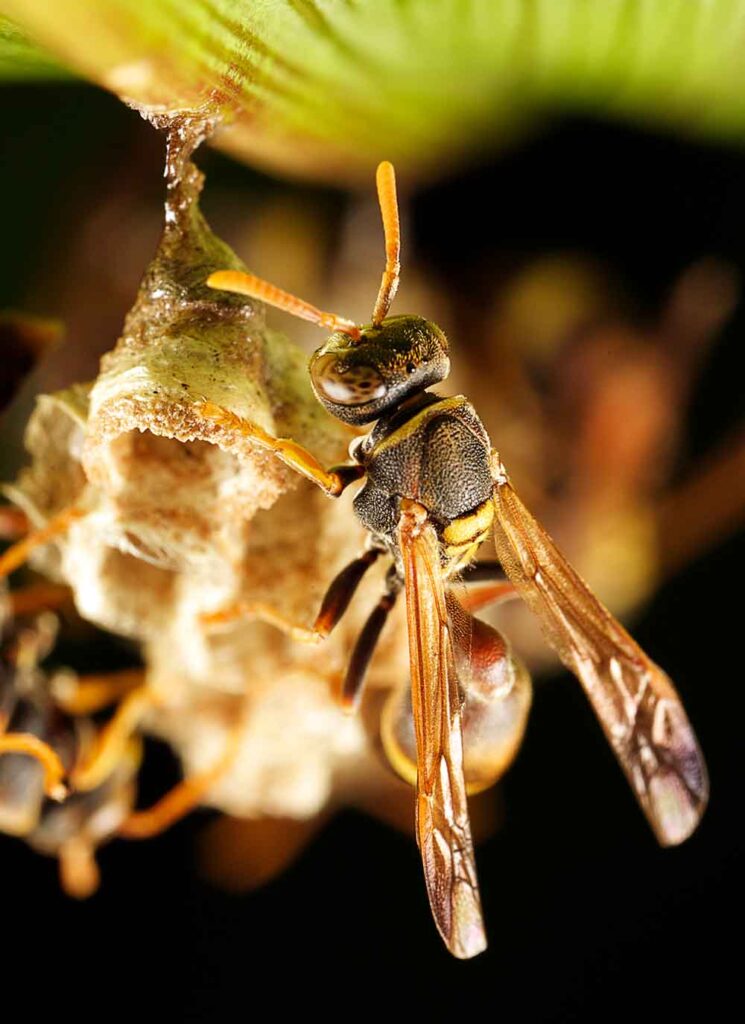Amesbury’s Homeowners Beware: Don’t Take on a Wasp Nest Without Reading This First
It’s a hot summer day in Newburyport. You’re trimming hedges or grilling in the backyard when you spot it: a papery-gray wasp nest clinging to the eaves. Instinctively, you think, “I can take care of that.” A spray can, a long pole, maybe a garbage bag. What could go wrong?
A lot, actually.
DIY wasp nest removal might look simple in YouTube videos, but here in Massachusetts—especially in towns like Hamilton, Wenham, Amesbury, and Ipswich—the reality can sting. Literally.
Let’s break down why you should resist the urge to handle wasp infestations yourself and what can go terribly wrong if you do.
1. They Attack—Fast
Paper wasps, yellowjackets, and hornets are extremely territorial. When threatened, they swarm. If you poke or spray a nest without the right gear or escape route, you’re basically volunteering as tribute. In New England, nests grow larger and more aggressive by midsummer, making the risk even worse.
All it takes is one step too close—or one blast of wasp spray—to trigger an attack. Unlike bees, wasps can sting multiple times, and their venom is potent. For those allergic, a single sting can mean a trip to the ER.
2. You Probably Missed the Nest Behind the Nest
Wasps are clever. What you see is often only part of the problem. DIYers often treat one nest and leave another untouched—only to have the infestation return in days.
Professional wasp control should include a full inspection of your property, checking nesting sites that homeowners sometimes miss.
3. Sprays Can Make It Worse
You may think a $9 can of wasp spray will do the trick. Unfortunately, most over-the-counter products just agitate the colony and drive the wasps deeper into your structure.
Even worse? Some sprays are toxic to pets and pollinators. Safer Nature Pest Control uses solutions that are deadly to wasps—but safe for your kids, pets, and the bees you want in your garden.
4. Ladders + Stings = Disaster
One of the most common wasp nest locations? High eaves. That means ladders.
Wasp stings cause pain and swelling—and often loss of balance. Picture yourself 12 feet up a ladder, suddenly swatting at your face. No one wants a trip to the ER from a DIY gone wrong.

5. You Might Actually Make the Problem Worse Next Year
If you don’t destroy the entire nest or queen, you’re just hitting the snooze button. Wasps can rebuild quickly, especially in places like wooded areas and old structures which offer ideal nesting conditions.
Additionally, improperly removed nests leave behind pheromones that attract next season’s queens. Meaning: more nests, more danger.
Trust Safer Nature for Wasp Nest Removal in Massachusetts
At Safer Nature Pest Control, we serve Amesbury, Newburyport, Topsfield, Andover, Reading, and all surrounding areas with a safe, strategic approach to wasp control. Our eco-friendly treatments eliminate nests, prevent return visits, and keep your family protected—all without harsh chemicals or unnecessary risk.
Ready to Remove That Wasp Nest the Safe Way? Contact Safer Nature Pest Control today and let us handle the danger—so you can enjoy your summer, sting-free.
